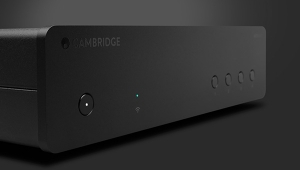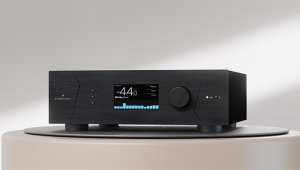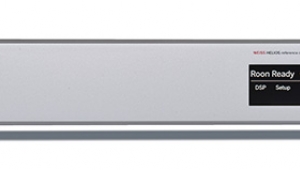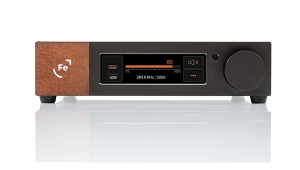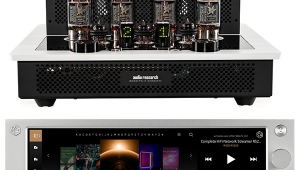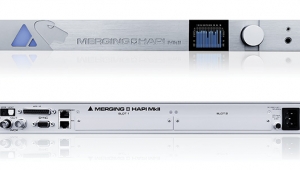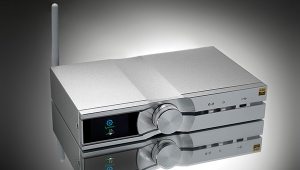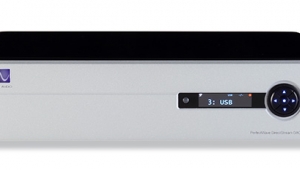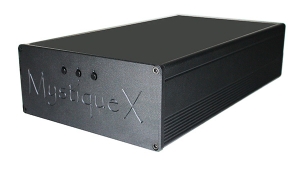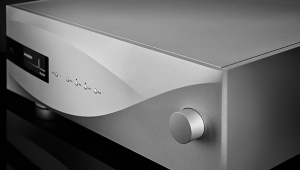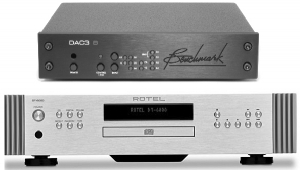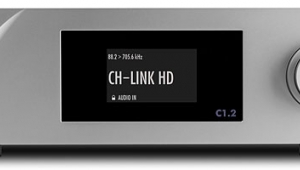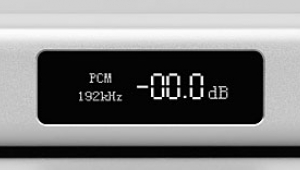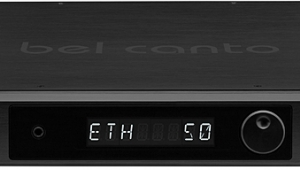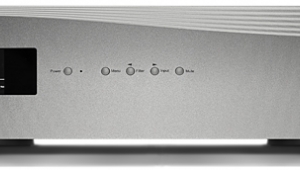| Columns Retired Columns & Blogs |
MSB Platinum Link Plus D/A processor Manufacturer's Comment
MSB Platinum DAC: Manufacturer's Comment
Editor: We at MSB Technology have been producing DACs for over 15 years, and frankly were disappointed at the lack of attention paid to the totally unique character of this DAC. This is the first DAC produced by MSB that is an original discrete design. This means that it does not use any commercial DAC chip internally. We designed and produced a novel DAC design with discrete parts, whose performance is unlike any DAC ever measured or listened to by Stereophile.
Many years ago, all DACs were ladder DACs. Then came a new design: the single-bit DAC. Stereophile took care to explain the theory and character of single-bit DACs, describing both strengths and weaknesses. Virtually every DAC review since then has been of a single-bit design. Now a unique discrete R2R ladder DAC by MSB lands in their lab after two very successful years in production, and the review gives no indication that they even popped the cover. During his testing, John Atkinson very smartly spotted that something was very surprising in this DAC's output, but did not dig in and let you, the reader, know what was going on in this unique DAC. I hope a Follow-Up review of our new Platinum DAC II preamp, just released at CES, will involve a much deeper evaluation.
One of the most surprising aspects of our DAC design is the absence of an analog low-pass filter on the output. John spotted this and included several excellent waveforms showing the output with upsampling on and off. What would an analog low-pass filter do with the MSB DAC besides give you a smooth waveform to look at with your oscilloscope?
On the positive side, analog low-pass filters reduce the amount of very-high-frequency content present in the DAC output. Although most of this content is eliminated by filtering in the amplifier, some may pass through to the speakers. The speakers are completely indifferent to any content at such a high frequency. We filter most DACs because some poor-quality amplifiers may alias some of the high-frequency content back into the audio range. Although this is a very rare occurrence that we have never seen in 10 years of producing DACs without output filters, it is possible, so the mass-producers of DAC chips always specify a low-pass filter.
On the negative side, low-pass filters create phase shifts and distortion as they introduce imperfect devices, such as inductors or capacitors, into the analog signal path. Phase errors do not show up in the sinewave output but are readily heard by listening.
We at MSB feel this is just one of many contrarian design concepts which we support that are little understood or appreciated by the majority of the audiophile community.
Another even more significant issue that was totally overlooked by Stereophile in this review was the MSB Network, designed to be the primary interconnection between the transport and DAC. The MSB Network is a high-speed connection in which the bit clock, word clock, and data are sent separately to the DAC (just like the I2S format promoted by Audio Alchemy, but a 24-bit/192kHz format version). Can you imagine the pre-home-theater Stereophile reviewing the latest Audio Alchemy DAC without even trying the I2S input? We at MSB do all of our critical listening and evaluation with the MSB Network. Sonically, it is much superior to S/PDIF, and inherent in its design is its great reduction of the jitter produced in the transport.
The MSB Network can be added to virtually any digital device, including CD players old or new, DVD players, and computer soundboards, for only $595. Had we been asked, we would have gladly supplied a transport to Stereophile, or upgraded a CD transport of their choice. We also hope that a Follow-Up review of the Platinum DAC II can be arranged soon that will include the MSB Network in the reviewer's favorite transport. Only then can the true capability of the Platinum be heard.
In conclusion, although the review was positive, we certainly believe that Stereophile readers have not been adequately informed about a new and impressive set of technologies being provided to the market by MSB. We hope these critical words will give no offense personally to the excellent reviewers involved, but will push Stereophile management to invest more time and resources in understanding, explaining, and interpreting new technologies.—The MSB Team
- Log in or register to post comments
